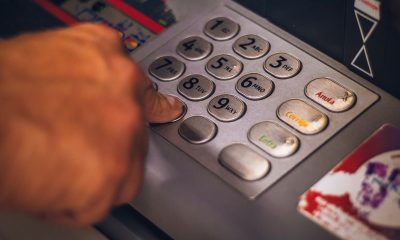finance
Amzn.com/bill WA charge on credit card and bank statement: What it’s about

There have been several reports of Amzn.com/bill WA charges on credit cards and bank statements from different users. We will be writing a short review about the charge.
Continue reading below to learn more.
Amzn.com/bill WA charge on credit card
You are most likely seeing this charge because you purchased something from Amazon.com. If you did not make this payment, it is possible that someone else did, which could be a sign of fraud.
It could also be an automatic subscription purchase made through your Amazon account.
You should go to your account page and look under “memberships and subscriptions” to see if you’ve signed up for one of their subscriptions by accident.
You can also look for the charge in your email to see if anything comes up. If you can’t find a reference for this amount, contact Amazon support.
The unidentified charge may also be a bank authorization. When you place an order, Amazon contacts the issuing bank to confirm the payment method’s validity. Your bank will hold the funds until the transaction is completed or the authorization expires. This reservation appears on your statement right away, but it is not a charge.
Other typical scenarios for unidentified charges:
- A family member, friend, or coworker with access to your credit card number placed an order.
- Additional credit or debit cards are linked to the credit or debit account.
- A back-ordered or pre-ordered item was delivered.
- A gift order has been shipped.
- An order was split into multiple shipments or delivered to multiple addresses. Keep in mind that this order will appear on your statement as separate charges.
Also, keep in mind that fraudsters frequently conduct a small dollar transaction to determine whether a card is active. After receiving approval, they begin selling the numbers on the black market. Minor unauthorized purchases are often an indication that the card has been compromised.
How to look up a charge on your credit card statement
Charges from merchants on a credit card statement may appear perplexing or unrecognizable, even to the person who authorized the charge.
Some merchant names are more cryptic than others, especially for small businesses that may use the owner’s name as a merchant name rather than the business name.
There are several methods for researching unknown credit card charges:
- Look up the words in the description of the charge on your statement using a search engine, exactly as they appear.
- Call the number on the back of your credit card to see if your card issuer has its own merchant search tool.
- Contact any merchants you did business with on the date of the charge and inquire about how their company appears on credit card statements.
With all of the credit card transactions that take place every day, mistakes are unavoidable. However, cardholders have some recourse if errors appear on their credit card bills: you can dispute charges you don’t recognize.
Just keep in mind that the credit card company will investigate the charges, so you should retrace your steps before disputing the charge. Examine all receipts from that time period to ensure you did not simply overlook a purchase you authorized. If you come up empty-handed, contact the merchant; it could be an honest mistake, and the charge can be reversed. If it’s not an error, contact your credit card company to dispute the charge.
What to do if you didn’t authorize the Amzn.com/bill WA charge
If you did not authorize the charge, you could be the victim of credit card fraud. You must immediately notify your card issuer by calling the number on the back of your card or logging into your online credit card account.
Your credit card company will most likely cancel your card and send you a new one. You will not be held liable for the unauthorized charges.
In other news, AT&T COR DF charge on credit card and bank statement: What it’s about.












